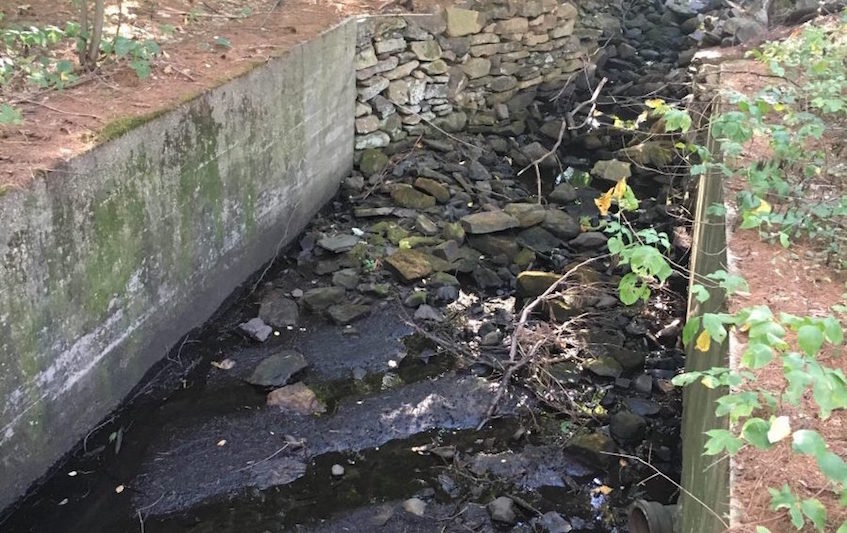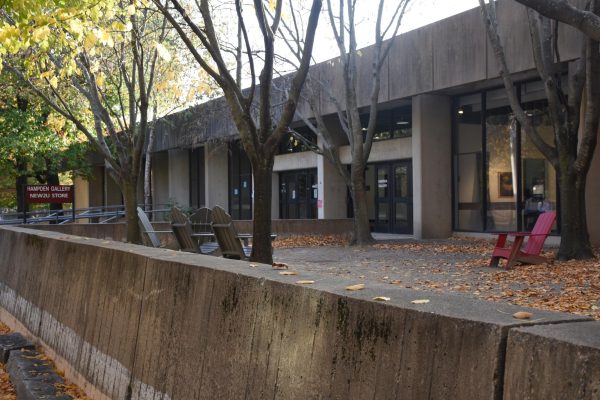With no end in sight for drought, water ban in Amherst continues
AMHERST — The Amherst Select Board voted Monday night to tighten its grip over the town’s water supply by continuing the mandatory water ban and implementing new fines for violators.
Effective immediately, those who do not abide by the water ban are subject to fines of $50 for the first offense and $100 for subsequent offenses.
The Select Board met Monday to discuss the effectiveness of the ban. It has been just over a month since the the town imposed the restrictions Aug. 19.
“Efforts continue to be effective … mostly good news,” said Interim Town Manager David Ziomek during the meeting.
Members of the Select Board said they are pleased with the community’s adherence to the restrictions. At the meeting, Ziomek said the new fines are a temporary measure that “would begin immediately and end when the water commissioner says to do so.”
According to a presentation Ziomek gave to the Select Board, water usage is down in Amherst compared to past years.
All non-essential outdoor water use is prohibited in Amherst, including watering lawns with sprinklers or automatic irrigation systems. Washing vehicles, exterior building surfaces, parking lots, driveways and sidewalks are not allowed, and residents may not fill privately owned outdoor pools, according to the town website.
As of Tuesday, water usage Amherst hovered just below three million gallons per day. The total is not far off from the 2.8 million gallons used per day last month before the town’s nearly 30,000 students returned for the fall semester at the University of Massachusetts Amherst, Amherst College and Hampshire College.
Historically, the arrival of students in Amherst caused massive spikes in water usage. In the past, this influx has caused UMass to take extreme measures. In September 1980, the university was forced to send students home due to a water shortage.
UMass Chancellor Kumble R. Subbaswamy launched a campaign calling on students to conserve water at the beginning of the semester. Through written notices and videos, Subbaswamy encouraged students to limit showers to five minutes and be mindful of unnecessary water use. The short videos posted to social media were created with the university’s Sustainable UMass program.
Water saving tips from Chancellor @KSubbaswamy & @Sam_Minuteman: Only wash full loads of laundry! #UMass Amherst #UMassSavesH2O #drought pic.twitter.com/EUy6ZoiHeD
— Sustainable UMass (@UMassSustain) September 20, 2016
The Select Board voted to temporarily close the Atkins Reservoir — the town’s primary water source — on September 21. Closing the reservoir is expected to allow water to collect for town use in October, November and December.
In the meantime, Amherst relies on a series of five wells in the Lawrence Swamp that Ziomek said “will sustain us into the future.”
The National Oceanic and Atmospheric Administration (NOAA) published a regional drought outlook on September 15 that projects that the drought will persist in the Amherst region, with no short-term relief in sight.
According to the National Weather Service Climate Prediction Center, drought-like conditions are expected to persist in Massachusetts (excluding parts of Berkshire County) until the end of November, the Daily Hampshire Gazette reported in August.
Email Ian at imunnelly@umass.edu or follow him on Twitter @i_munnelly.

"Here we are, trapped in the amber of the moment. There is no why." - Kurt Vonnegut
Email Ian at imunnelly@umass.edu or follow him on Twitter @i_munnelly











